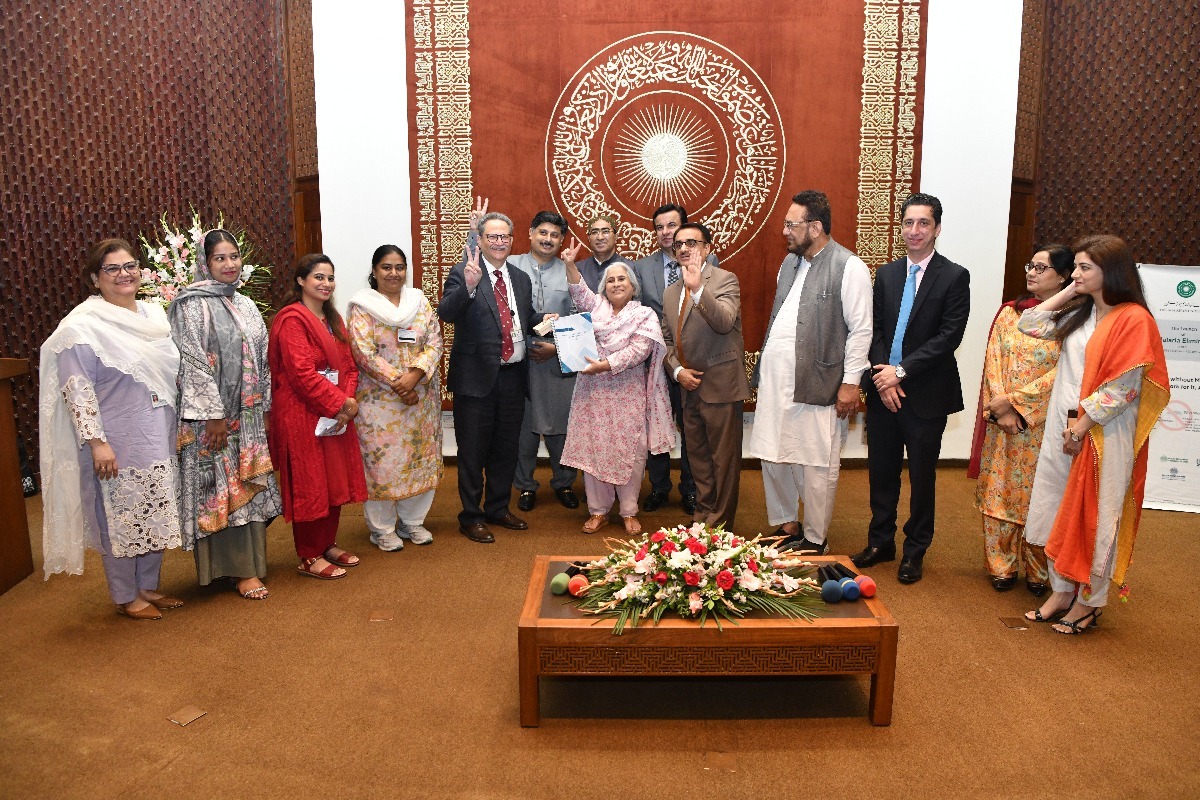WNAM REPORT: Federal Health Minister Syed Mustafa Kamal said that “the foundation of a healthy Pakistan lies in protecting our children from preventable diseases. We are taking steps to increase immunization coverage to ensure timely delivery of life-saving vaccines to every child. Each year, approximately 7 million children in Pakistan receive routine immunization services. Through our polio campaigns, we reach over 45 million children. It is a matter of concern that Pakistan remains among the few countries where the poliovirus is still present.”
The Minister further stated that “under the leadership of the Prime Minister of Pakistan, we remain committed to the complete eradication of polio. I am taking all possible measures to eliminate polio from across the country and to protect children from lifelong disability. We appeal to religious scholars, the media, and civil society to play their full and effective role in the fight against polio. A safe and secure future for our children is a shared responsibility of us all.”
The details were later shared by the Spokesperson of the Health Ministry sharing, Pakistan is commemorating World Immunization Week 2025 from 24 to 30 April to promote the life-saving power of vaccines. Under the international theme of ‘Immunization for All is Humanly Possible’, the Federal Directorate of Immunization (FDI), in collaboration with all provincial Expanded Programs on Immunization (EPIs), the World Health Organization (WHO), UNICEF and partners are carrying out a series of awareness activities to remind that vaccines are one of humanity’s greatest achievements. Every year, Pakistan vaccinates over 7 million children with routine immunization doses, in addition to reaching 45 million children through multiple supplementary polio vaccination campaigns.
Since the creation of Pakistan’s Expanded Programme on Immunization in partnership with the World Health Organization (WHO) in 1978, millions of Pakistanis have been protected every year with life-saving vaccines. In the last 50 years alone, vaccines have saved 154 million people around the world, the equivalent of 3 million a year or 6 people every minute.
Last year, Pakistan looked to vaccinate 7.3 million infants. Out of these, 1.2 million children (16%) did not receive any dose of measles vaccines because they did not complete the full schedule due to several reasons, making us susceptible to outbreaks. There are significant regional disparities in vaccination coverage as well, with almost half of Balochistan children (49%) remaining under or partially immunized. Pakistan also remains one of the last two polio endemic countries in the world.
“Vaccination is not just a health intervention, it is an investment in a healthier and more prosperous future,” said FDI’s Director General Dr. Shabana Saleem. “The EPI remains committed to ensuring that every individual, regardless of their location or circumstances, has access to life-saving vaccines.”
Pakistan provides free vaccination against 12 vaccine-preventable diseases in the EPI routine schedule.
WHO Representative in Pakistan Dr. Luo Dapeng emphasized that WHO stands by Pakistan to continue reinforcing its immunization programmes. “Vaccines are safe. Vaccines work. Vaccines save millions of lives. Since 1948, WHO has been partnering with Pakistan as a founding member of the Organization and will continue to do so. Since the creation of the Pakistan Expanded Programme of Immunization in 1978 in partnership with WHO, we have worked together to protect and save the lives of millions of people. Every newborn deserves the benefit of these vaccines. Reaching every child is not only the right thing to do, but also the best investment to build a prosperous future for Pakistan; and it is humanly possible.”
Mr. Abdullah Fadil, UNICEF Country Representative shared that “I want to reiterate UNICEF’s commitment to supporting the key components of Pakistan’s Expanded Programme on Immunization that include service delivery, cold chain and driving demand for vaccines. Together, our aim is to reach every child, reduce the number of zero-dose children, and ensure that full immunization coverage across Pakistan.”


